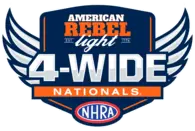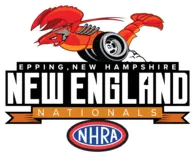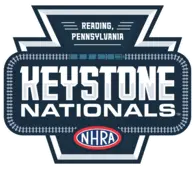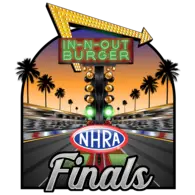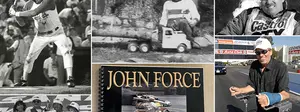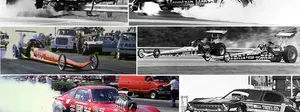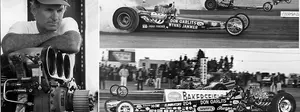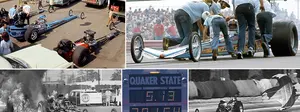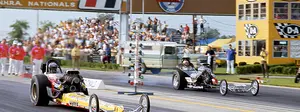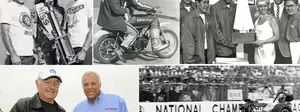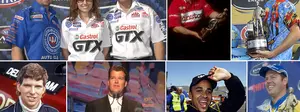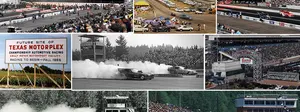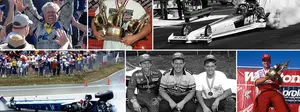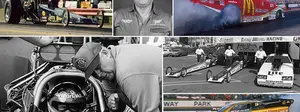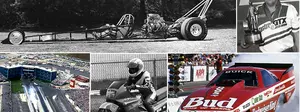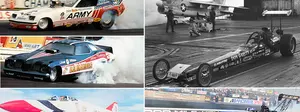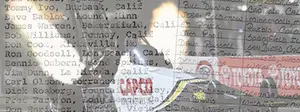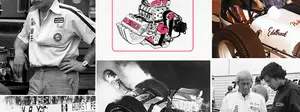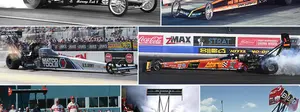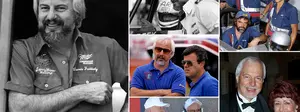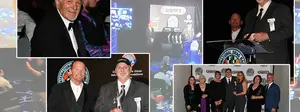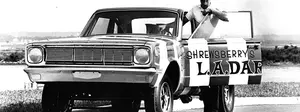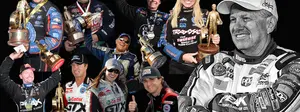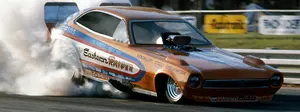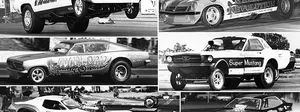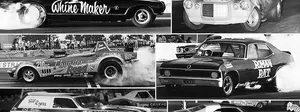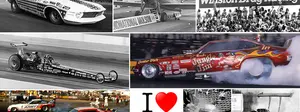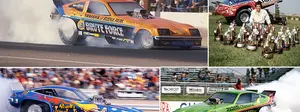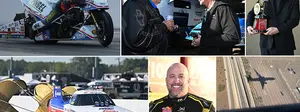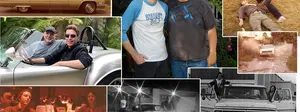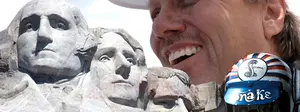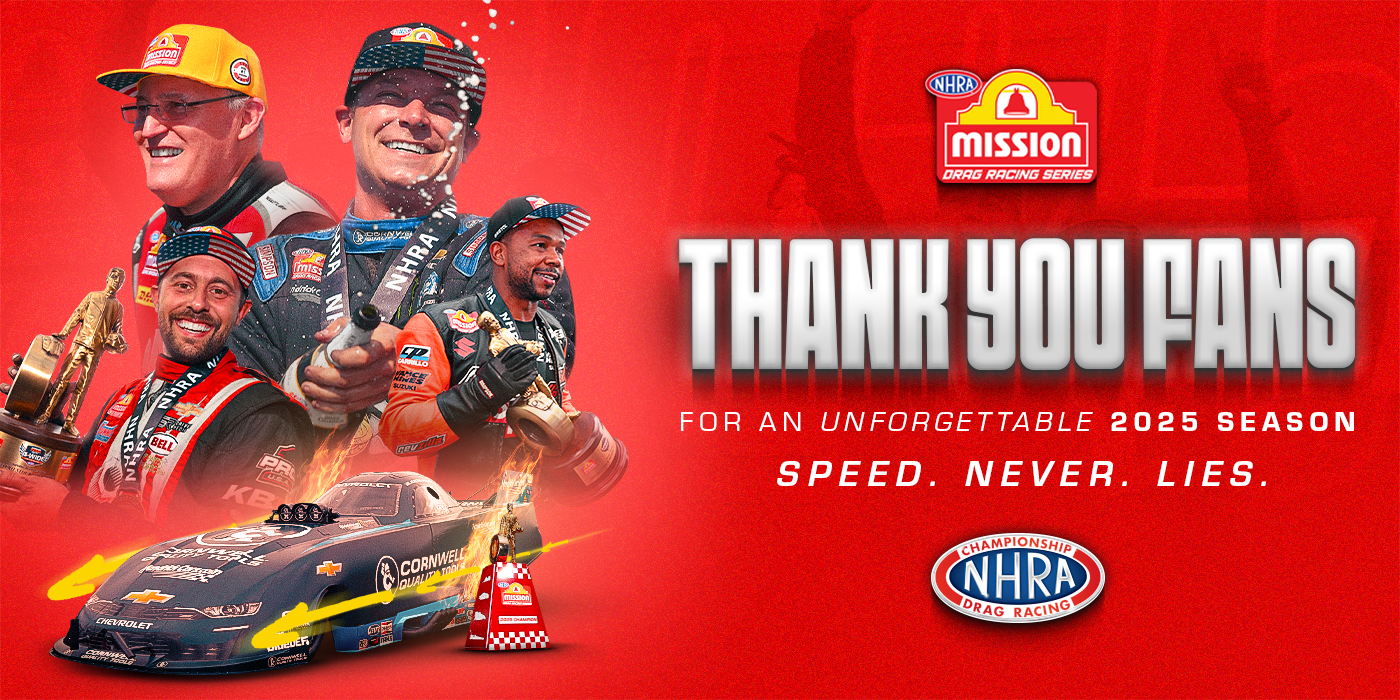

Wheelie neat! A look at seven decades of wild, wheelstanding crowdpleasers


As kids, I think we were all enthralled with wheelies. Who could pop a wheelie on their Schwinn Stingray and ride it the length of the block? Then, as a teenager, I remember seeing wannabes with wheelie bars on their street cars (leading to the burn-ward-worthy salvo, “The only way that thing will get the front tires off the ground is if you drive it off a curb.”).
As we grew, the ability to see a car pull the front wheels off the ground became the ultimate arbiter of whether or not it was badass, and never was that truer than at the dragstrip. Seeing a car with the front wheels dancing 6 inches or a foot off the tarmac on a hard launch still gives me goosebumps. Of course, wheelies in cars are a fine balancing act between ultimate weight transfer for traction and going too far, as our Top Fuel friends learned in the 1980s.
And then there are those who have perfected the art of the wheelstand and made a pretty good living doing it, making exhibition runs on two wheels at dragstrips all around the world. After my recent profile of Ed “the Outlaw” Jones, the breed’s longest-running (and still active) wheelstander driver, I got some inquiries to delve into the history of the class and to show some of the oddball wheelie cars that have stood up and been noticed over the years, and Hall of Fame photographer Steve Reyes obliged with a blizzard of images from his amazing archives.
(A caveat before we get started: This is not intended to be an encyclopedic look at every great wheelstander, just some back stories on some of the images that Reyes sent. If you want to take a look at the many, many, many other wheelstanders of all shapes and sizes, check out this hidden-gem website, Wheelstanders, Pioneers of the Twentieth Century.)
Wheelstanders were not born but evolved in a rather comical fashion when some experimental vehicles of the 1960s couldn’t manage to keep their front wheels on the ground, the most famous being the Little Red Wagon Dodge A-100 truck and the Hemi Under Glass Barracuda. Both were designed to be real race cars but quickly found new purpose.

You can read the full story of how the Little Red Wagon became the sport’s first wheelstander in the tribute I wrote to Bill “Maverick” Golden after his passing in September 2015. In a nutshell, Dodge was looking for some publicity for its new cabover-engine A-100 “pickup” (the front-engine D-100 had preceded it), and someone thought it might make a cool entry in the new Factory Experimental class. After a truckload of work and refitting at Dick Branster’s Michigan shop, Jay Howell, one of Branster’s top fabricators, got the first shot at the new truck in late 1964 and got it to run elevens at 120, but it was spooky on the top end and wheelstood like crazy thanks to its 58/42 rear/front weight distribution with the rear-mounted 426 Hemi.
Golden, one of Dodge’s top doorslammer pilots in the early 1960s, eventually got the call to tame it at the 1965 AHRA Grand American at Lions Dragstrip, where the car was on and off the bumper seven times on one pass. The crowd went nuts, the light bulb went on over Golden’s head, and the rest was history as he drove a variety of Little Red Wagons up through his 2003 retirement.

A number of truck-style wheelstanders latched onto the hubbub created by the Little Red Wagon, but the Hemi Under Glass Barracuda was the first car-based wheelstander. Like the Wagon, it wasn’t purpose-designed as a wheelstander and also was intended for the FX class after being commissioned by George Hurst in 1965 as a showcase vehicle for the Hurst line of products. “It was never Hurst’s intention for the car to do wheelies,” Bill Shrewsberry, its first pilot, told me in a 2008 interview. “It was more like an experimental car with an experimental shifter."
The car debuted at the 1965 Springnationals in Bristol, where it couldn’t stay off the rear bumper and soon followed the Wagon into wheelstander territory. Shrewsberry only drove it for one year, in 1965, before heading off to build his famous L.A. Dart (Hurst actually had envisioned Shrewsberry driving his next exhibition car, the star-crossed Hurst Hairy Olds, but that car was too wild for even “Wild Bill").
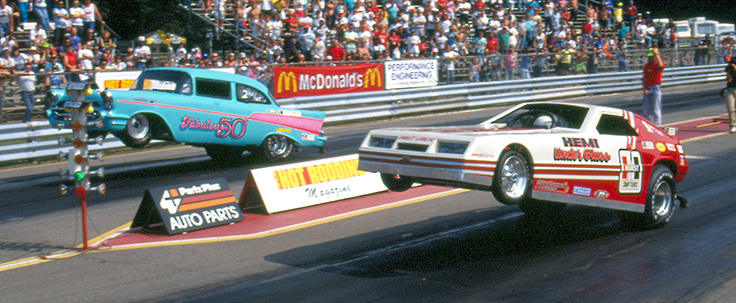
Bob Riggle took over the controls in 1966 and made the Hemi Under Glass a national event staple well into the mid-1970s until a terrible crash in 1975, and was succeeded by Jack Ehrmantraut, who drove a couple of different versions, including a Dodge Daytona-bodied version of the entry (above), shown racing his son, Toby, at the wheel of the Fabulous 50s '57 Chevy Bel Air.
Riggle made a comeback in 1992 and later built a new Hemi Under Glass in 2013 that was infamously rolled at Irwindale Speedway with Jay Leno aboard for a TV segment. Current star Mike Mantel resurrected the famed Barracuda version car and name in 2016 and still runs the car.

Mantel also owns the original Little Red Wagon, a truck that was crashed at least three times before Golden built a second Wagon, and you can see him above, in this great Matt DeYoung photo, getting all four wheels off the ground in Tucson, Ariz., in 2019.
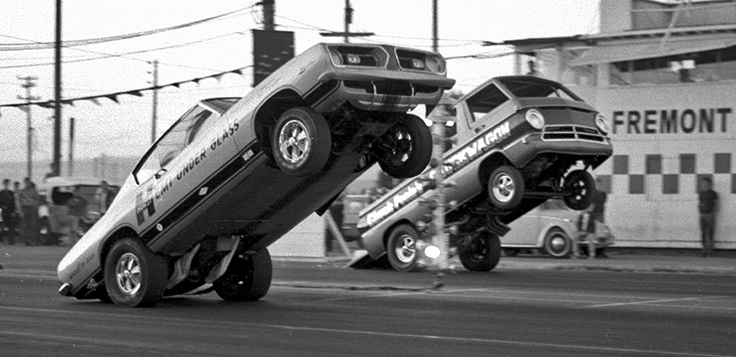
Another of the O.G. wheelstanders was Chuck Poole’s Chuckwagon, another Dodge A-100 that debuted in 1966, shown here in the far lane doing battle with the Hemi Under Glass at Fremont Dragstrip.

With the proliferation of wheelie trucks, one had to do something to stand out, right? Enter Hollie Swindell, who flipped the script by creating the Backup Pickup, using a Ford Econoline base, putting the big tires on the “front,” and popping wheelies in what looked like reverse. Dick Harding and George Tuers later ran a much more famous version of this iconic wheelstander.

I love this angle of the BUPU because it shows how the driver was oriented in the truck. Too cool!

While the venerable Hemi-powered Dodge D-series of “trucks” were the basis for any of the early wheelstanders, Richard Hutchins went way outside the zone in 1979 with a '62 Volkswagen pickup with Chevy power, called, appropriately enough, “Chevy Rebellion.”
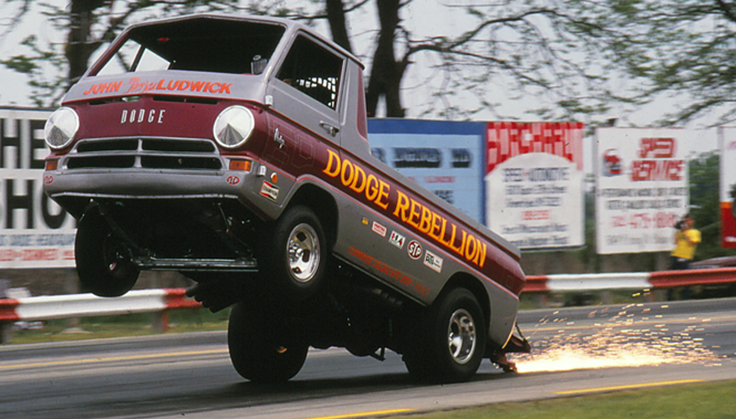
And here’s John Ludwick’s “Dodge Rebellion” ’64 Dodge, powered by an alky-burning Hemi, performing at legendary Great Lakes Dragaway, scene of so many wild wheelstander battles.

“General Jerry” Lee (reportedly a second-great grandson of General Robert E. Lee) also took things in a different direction in the early 1970s with his ’27 Ford flatbed wheelstander, powered by an injected (and, later, supercharged) Ford powerplant.

But back to the wheelie cars. The aforementioned “Wild Bill” Shrewsberry’s candy-striped L.A. Dart was a match-race mainstay and West Coast treasure for decades, from 1965 through the early 1980s. Shrewsberry is perhaps best remembered for this stunt, standing up through the windshield in mid-wheelie, which was not appreciated by NHRA officials. Shrewsberry told me, “I only got to do it three or four times before [NHRA Event Director] Jack Hart called me into the NHRA offices and told me, very politely, that he knew what I’d been doing and that I couldn’t do it anymore, but to tell everyone I got my ass chewed out really good about it.”
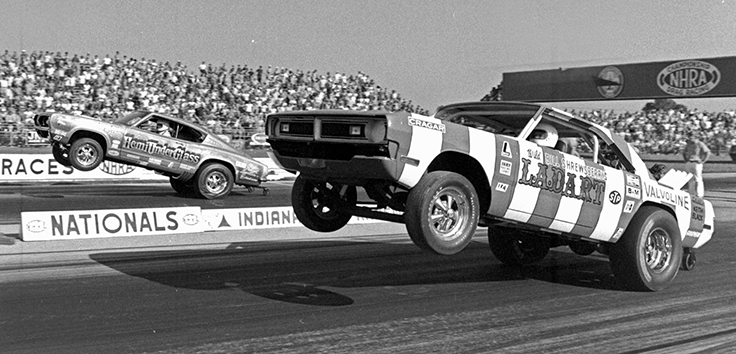
Here’s a couple of wheelstanding icons, Shrewsberry and Riggle, going at it at an early 1970s U.S Nationals.

Shrewsberry later traded in the Dart for this wheelstanding ’30 Ford Sedan Delivery, sponsored by the Knott’s Berry Farm amusement park in Southern California, that used the engine right out of the L.A. Dart.

Bob Perry is another famous first-gen wheelstander driver, launching his two-wheeled career in the mid-1960s, appealing to Chevrolet fans with a Chevy Greenbriar van (converted into a “pickup” by slicing off the roof in the back) named “Fugitive,” no doubt after the then-popular television show. In 1969, he built what is probably his second-most famous wheelstander, the "Fugitive" Corvette which was a showcase of engineering. According to an article in the March 1974 issue of Drag Racing USA, Perry pushed the 427 Chevy engine as far back in the car as he could to provide the ballast then used the power divider from an Army weapons carrier between the transmission and rear end and used double-disc floating brakes from a T-33 trainer aircraft to steer.

Perry’s most memorable wheelstander, of course, is the Hell on Wheels tank that he debuted in 1973. The replica of an M-60 Sherman tank was also driven by Ehrmantraut and a second entry, modeled after a Howitzer-style Patton tank called Hell’s Fire, was also sometimes piloted by Riggle. "Driving the tank at speeds approaching 140 mph is like trying to carry a piece of plywood in a 30-mph wind," said Perry, who later built a Hell on Wheels II tank that ran on the monster truck circuit with real working treads.
At the height of the 1970s Star Wars craze, Perry also built two spaceship-themed wheelstander entries, "Galaxy II" and "Death Ship."

In the mid-‘90s, New Hampshire-based Joe Klimarchuck brought out his own version of Hell on Wheels to delight East Coast fans.

Before he built the Last Stage West wheelstanding stagecoach in 1974 (that later became iconic under the handing of Ed Jones), Tommy Maras had the Moonshot ’69 Chevelle in the early 1970s. The 427 Chevy powerplant ran on a mix of 40% nitro!

Believe it or not, Fuel Altered and Funny Car mainstay Dale Emery built the Flying Red Baron ’69 Mustang that took to the skies in the early 1970s. Emery sold it to Gary "Texas Wheelstand King" Watson, who put Tommy Davis at the controls.

Watson had been doing wheelies since the mid-1960s with a ’66 Chevy van called Paddy Wagon that continued well into the 1970s with this Chevy Vega wagon seen in this great body-off shot.
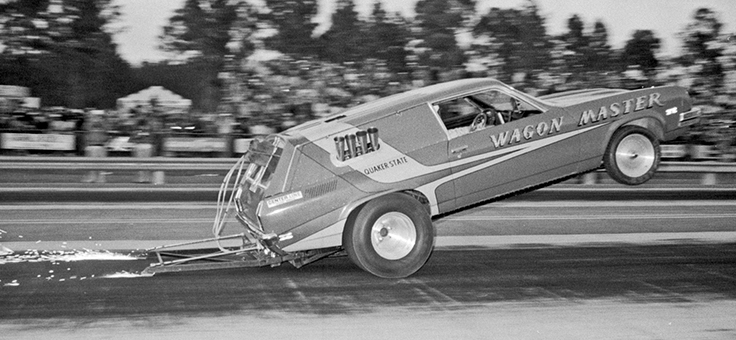
Chet Smith had a similar subcompact wagon-based machine — using the Pontiac Astre cousin of the Vega — on his Wagon Master entry.
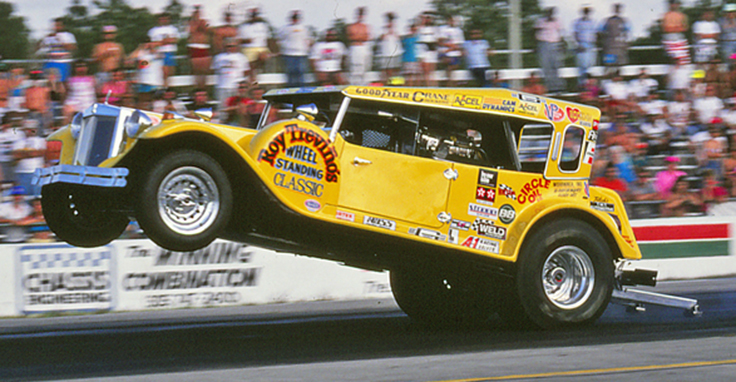
Roy Trevino was another long-tenured wheelstander pilot, beginning in the late 1960s with a Corvair pickup and then an El Camino (both dubbed Texas Rare Bear), followed by an unusual '74 VW squareback called Power Wagon. NHRA fans will likely recall this Trevino entry, dubbed Trevino’s Classic and built around a stretched ’27-T Ford roadster. Trevino continued to run deep into the 1990s with GMC truck models.

Longtime NHRA announcer Richard Schroeder was in the wheelie business way back in the 1970s with his Jet Age Challenger, but recent fans will remember him for his wild, twin-engined Emergency West Chevy crew cab that he ran up until his passing in 2007.

Schroeder’s other memorable entry was the Bad Bossa Nova, which later became the Smokey Red entry of Joe Douthit, shown here squaring off with Ed Jones’ stagecoach at what I believe is the 1983 World Finals at Orange County Int’l Raceway.

Prolific Massachusetts-based Danny O'Day is another long-tenured wheelstander pilot, fielding a variety of unique machines, including the Wind-Up Pickup Ford Ranger (complete with a mock wind-up key in the bed), the Heartbeat High Chevy S-10, the Superwinch Insanity Chevy Lumina, the Superwinch Superbird Thunderbird, and this familiar ’34 Ford roadster.

“Diesel Louie” Force, brother of 16-time Funny Car legend John Force, didn’t go flopper racing, but instead wowed fans with this blown Hemi-powered ‘53 Kenworth wheelstander.

Rick Markham’s One Night Stand Chevy S-10, shown doing its thing at Pacific Raceways, was a popular draw in the Northwest for two decades.

Gary McWilliams' Pick Your Part-backed "E-Ticket Ride" '55 Chevy Cameo pickup was a hit on the West Coast in the 2000s.

Certainly, one of the wildest wheelstanders to come out of the last two decades was the late Ken Nelson’s replica school bus, dubbed Cool Bus Fun System, that was 20 feet, 6 inches long. The big-block Chevy engine was way out back while Nelson was ensconced approximately in the middle of the bus. It’s not pictured here, but he often placed a dummy in the bus up where a regular bus driver would have been stationed.
The bus, unfortunately, went on its head in 2009 in Texas, but was repaired.
OK, unlike Nelson, I'm gonna successfully land this column for today. Thanks again to the magnanimous Mr. Reyes for all of the great images. As I mentioned earlier, this wasn't meant to be an encyclopedic look at the breed, just some cool old photos. If you want to see another encyclopedic look at wheelstanders beyond the aforementioned Wheelstander website, head over to Bill Pratt's amazing DragList.com site, where he has an alphabetic list of pretty much every wheelstander to ever tour the quarter-mile on two wheels, a roll call that totals 1,070 entries.
Phil Burgess can be reached at pburgess@nhra.com
Hundreds of more articles like this can be found in the DRAGSTER INSIDER COLUMN ARCHIVE
Or try the Random Dragster Insider story generator






